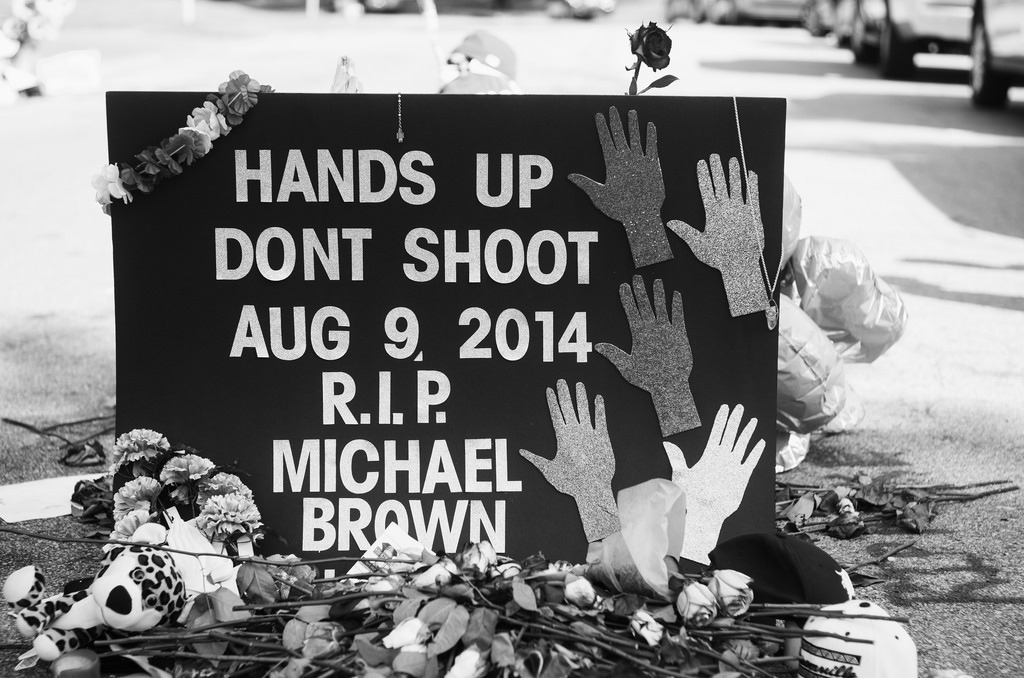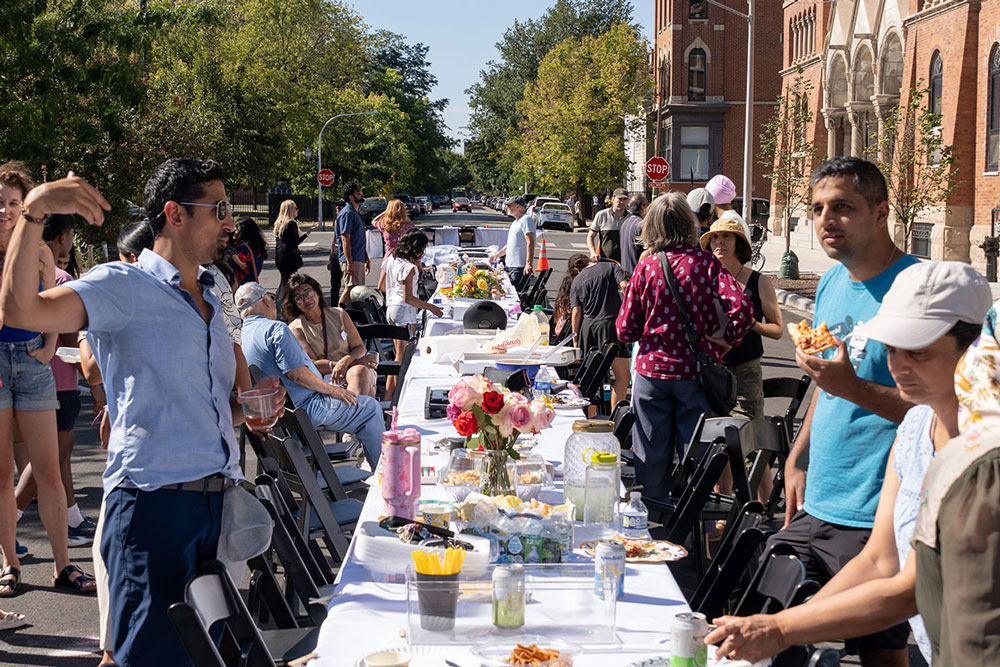
A year ago, a young unarmed African-American teen, Michael Brown, was killed by a white police officer on a street in Ferguson, Missouri. Some time later, Governor Jay Nixon created a commission, co-chaired by Rev. Starsky Wilson, the head of the Deaconess Foundation, to look at what might be constructively done to respond to or ameliorate some of the conditions that Brown’s death and the ensuing protests revealed.
The commission is closing in on the deadline for issuing its report, anticipated mid-September. Last week, it whittled down its likely recommendations from 200 to 30. The list of thirty recommendations includes much on the reform of policing and municipal courts, but also a number of other issues concerning education, investment, housing, and job placement that might surprise some observers:
- Expanding Medicaid eligibility to 138 percent of the federal poverty level in order to trigger Missouri’s access to federal resources under the Affordable Care Act
- Development of an array of early childhood education programs modeled on Oklahoma’s universal pre-K strategy and other programs
- Creating civilian oversight boards on police policies and practices
- Changing practices of municipal courts so that people wouldn’t be incarcerated for minor, nonviolent offenses
- Tasking the state attorney general to serve as a special prosecutor in all cases of police force in officer-related shootings resulting in injury or death
- Providing cultural bias training for municipal court, jail, and other government employees
- Creating a community justice center “that operates in conjunction with the municipal court for individuals charged with traffic violations and other types of violations, who are unable to pay or otherwise in need”
- Establishing a program of Individual Development Accounts (IDAs) and Family Development Accounts (FDAs), with capital sources including providing banks with Community Reinvestment Act credit for contributions to IDAs and “offering corporate tax breaks for contributions to development accounts”
- Improving childhood mental and physical health by creating school-based health centers and trauma-informed school districts based on the model of the Trauma and Learning Policy Initiative’s trauma-sensitive schools.
- Creating “a 25-year managed fund to solely support regional racial equity infrastructure for all sectors…[including] funding for racial equity capacity, needs and training assessment, analysis implementation, impact, sustained strategies and accountability”
- Addressing and correcting the disproportionality of school disciplinary actions (and updating all school discipline policies with positive youth development and restorative justice frameworks), including the elimination of out-of-school suspensions for children in pre-K through the third grade
- Raising the minimum wage to $15 an hour
- Ending hunger for children and families through expanding the Supplemental Nutrition Assistance Program (commonly known as food stamps) and the Women, Infant, and Children (WIC) program plus linking families and children to food resources
- Ending predatory banking by changing repayment terms and underwriting standards and capping the maximum APR at 36 percent (though the recommendations acknowledge that these issues are being addressed by the Consumer Finance Protection Bureau established through the Dodd-Frank legislation), plus increasing the availability of community development banking and multigenerational financial education
- Applying a racial equity framework to “existing and new regional policies, initiatives, programs and projects in order to address and eliminate existing disparities for racial and ethnic populations” with a focus on three questions: “who does this recommendation benefit, does this benefit differentially impact racial and ethnic groups, [and] what is missing from the recommendation that will decrease or eliminate racial disparities”
- Ensuring that “funding for job training programs throughout the state shall be prioritized for those programs that successfully serve, place, and retain job seekers as measured by dedicated performance metrics”
- Recommending a variety of initiatives to deconcentrate subsidized housing by significantly changing the state’s plan for the allocation of Low Income Housing Tax Credits including limiting the size of LIHTC developments to 50 units, prohibiting new construction of LIHTC projects where total subsidized housing is more than 20 percent of all housing units, and prohibiting the proposed LIHTC developments within one mile of other LIHTC or state tax credit projects
- Creating an “innovative education center/hub” to creatively solve the region’s education needs
Rev. Wilson and his commission co-chair, businessman Rich McClure, described their strategy in an op-ed in the St. Louis Post-Dispatch:
We see a new urgency, and an appetite for the difficult work that change requires.
It’s the kind of change that takes more than a year, of course, and more than a commission.
The kind of sustainable change our region needs to thrive in the decades to come will take continued collaboration, continued relationship building, continued responses to the calls of our faith, and continued re-examination of where we place our priorities and where we invest our resources. It will take patience, and it will take persistence. This pain and these conditions did not develop overnight. They won’t be resolved overnight, either.
Sign up for our free newsletters
Subscribe to NPQ's newsletters to have our top stories delivered directly to your inbox.
By signing up, you agree to our privacy policy and terms of use, and to receive messages from NPQ and our partners.
As we prepare to present our report in September, we know that for all the work that has been done, much work remains.
But we also know that the people of St. Louis are ready to move forward, and prepared to do this work. We know that our region has the capacity to focus on these priorities and the will to do so.
We know that because through this process, the people of St. Louis—not the Ferguson Commission, not the politicians, but the people—have come together and developed something new, something we didn’t have one year ago:
A road map for positive change.
That road map has to guide numerous players whose responsibilities for implementing each recommendation are specifically noted. The players include the Missouri legislature, school districts, municipalities, nonprofits, philanthropic institutions, early childhood education providers, community organizations, bank and credit union regulators, banks and credit unions themselves, the Missouri Congressional Delegation, the United Way, the Missouri Humanities Council, the Gateway Center for Giving, the Consumer Financial Protection Bureau, the Urban League, the St. Louis Business Diversity Initiative, the Missouri Housing Development Commission, public housing authorities, EdPlus, and dozens more. The Commission’s final report in September will be a roadmap, but there are lots of drivers with their own agendas who will have to be corralled into cooperation in order to see these ideas come to fruition.—Rick Cohen












